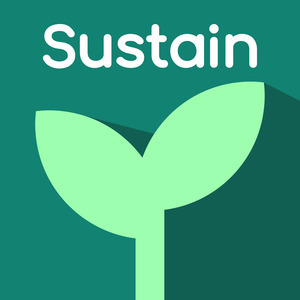Episode 237
OSS for Climate Podcast Crossover: Max Jones on Carbon Plan
June 14th, 2024
29 mins 27 secs
About this Episode
Guest
Max Jones
Panelist
Richard Littauer
Show Notes
In this first ever cross-over episode of Sustain and Open Source for Climate, host Richard welcomes guest Max Jones, a data scientist and open source software developer who works at Carbon Plan. Max discusses the importance of open source in bringing about effective climate action, the role of Carbon Plan in building accessible data products and tools, and how being a nonprofit is advantageous for open source development. The conversation also touches on funding models for open source projects in nonprofits, including support from individual donors, grants, and collaboration with governmental and private entities like NASA and Microsoft. Additionally, Max shares insights into the development of tools for better visualization of climate data, the impact of open source on climate action, and the challenges of ensuring software and data accessibility and reproducibility. Press download now to hear more!
[00:02:50] Richard outlines Max’s background in open source software development focused on climate action, including his leadership role at Carbon Plan.
[00:03:31] Max discusses the mission of Carbon Plan, emphasizing the importance of transparency and accessibility in climate solutions.
[00:04:23] Max describes his role in leading open source initiatives at Carbon Plan.
[00:03:23] The conversation shifts to the practical aspects of running a non-profit focused on open source projects, including funding mechanisms such as grants from NASA.
[00:06:58] Max explains one of their projects that involve tools for visualizing large-scale climate data to assist cities in planning and decision-making. He mentions how these tools are designed to be accessible to both scientists and the general public.
[00:08:13] There’s a discussion about community engagement with their tools, noting that while many people reach out with questions or feature requests, there have been few contributions in terms of pull requests.
[00:08:53] Max reflects on a collaboration with the Washington Post using their tools to inform public understanding of climate projections.
[00:10:37] Max discusses the broader use of the tools by various agencies and the importance of transparency for reproducibility in research.
[00:11:24] Max emphasizes the importance of reproducibility in open source projects across academia, industry, and the non-profit sector, and he acknowledges the challenges in ensuring that external users can engage with and reproduce their computational workflows.
[00:12:56] The conversation shares insights into building a community around open source projects, particularly through involvement with the Pangeo project, which supports reproducibility and scalability in earth science workflows.
[00:14:08] Max talks about the importance of finding common needs across different fields to promote broader collaboration and integration and mentions the Zarr project.
[00:15:51] We hear about the size of the team at Carbon Plan which includes various roles.
[00:16:28] Richard inquires about the funding landscape for open source projects at Carbon Plan. Max mentions the initial funding received through collaborations with NASA and Microsoft. He emphasizes the importance of ongoing government and agency support for both new tools and the maintenance of existing software.
[00:17:51] Max talks about contributing back to open source communities, highlighting the practice of reporting bugs and engaging with upstream dependencies to improve tools.
[00:18:38] The necessity of open source for transparency in climate solutions is discussed, contrasting with closed source companies that sell proprietary products to governments. Max argues for the importance of open source in ensuring accountability and better outcomes in climate solutions.
[00:20:07] Max discusses the broader aspects of open resources, such as leveraging open standards, data, and hardware. He mentions collaborating with other organizations to tackle scalable computing challenges.
[00:21:18] The conversation shifts to the environmental impact of computational work, with Max acknowledging the need for more efficient workflows and the broader implications of their organization’s focus, which includes understanding and adapting to climate change impacts.
[00:24:15] Richard and Max discuss the challenges of making data sets public in a market-driven environment. Max emphasizes the role of nonprofits in pushing for greater transparency and the potential impact of their work on broader technological practices.
[00:26:09] Finally, Max highlights a new project called OffsetsDB, and tell us where you can follow him and his work online.
Quotes
[00:03:44] “We believe that it’s necessary to have transparency and accessibility in our research, data, and tools in order to accomplish the mission.”
[00:06:17] “I don’t think we can have great climate solutions unless they’re open and accessible, especially to the communities that are most impacted by these problems.”
[00:11:47] “I would love to see more emphasis on reproducibility outside of academia as we push towards a more transparent model.”
Spotlight
- [00:27:42] Richard’s spotlight is an article he read and liked, “The Brazilian Special-Forces Unit Fighting to Save The Amazon.”
- [00:28:07] Max’s spotlight is an open access perspectives article called, “The Origins of the Generic Mapping Tools: From Table Tennis to Geoscience.”
Links
- SustainOSS
- SustainOSS Discourse
- SustainOSS LinkedIn
- Sustain OSS BlueSky
- SustainOSS Mastodon
- podcast@sustainoss.org
- Open Collective-SustainOSS (Contribute)
- Richard Littauer Socials
- Max Jones GitHub
- Carbon Plan GitHub
- Carbon Plan
- Pangeo
- Zarr
- OffsetsDB
- “The Brazilian Special-Forces Unit Fighting To Save The Amazon” (The New Yorker)
- “The Origins of the Generic Mapping Tools: From Table Tennis to Geoscience” by Paul Wessel
Credits
- Produced by Richard Littauer
- Edited by Paul M. Bahr at Peachtree Sound
- Show notes by DeAnn Bahr Peachtree Sound
